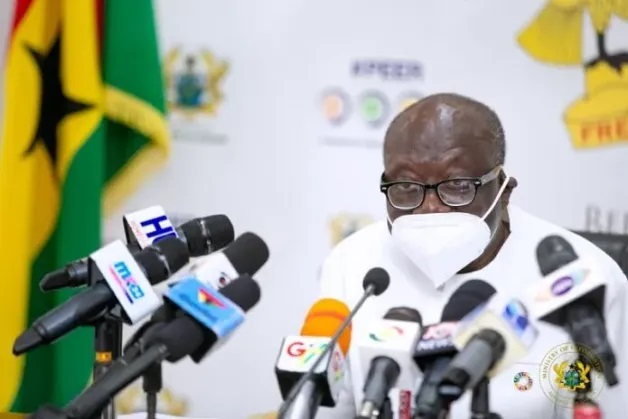The Minister of Finance, Ken Ofori-Atta, says the economy will rebound in 2024.
He projected a steady growth of 4.8 per cent in the medium-term, between 2024-2026.
Ofori-Atta said growth was projected at 3.9 per cent, 4.9 per cent, and 5.6 per cent, in 2024, 2025, and 2026, respectively.
Ghana’s economy has been facing severe challenges in the last few years, with debt rising to GH¢467 billion, and the local currency depreciating by over 50 per cent in 2022.
This prompted the country to seek help from the International Monetary Fund (IMF) who late last year gave a staff approval for a US$ 3 billion programme for the government.
The programme is however dependent on the country’s ability to restructure its debts which has reached unsustainable levels.
Although the government has announced a Debt Restructuring Programme, this programme has been met with stiff opposition from some groups and individuals, with some even threatening legal action.
This has led some analysts and market watchers to predict that 2023 will be a tougher year for the country, with the IMF even predicting a global economic recession in 2023.
In a statement at the 74th Annual New Year School and Conference, Mr Ofori Atta, however, gave an assurance that the country would soon return to growth path and accelerate its economic transformation.
“We are optimistic about the prospect of our dear country,” he stated.
This year’s New Year School and Conference, which was held on the theme “Positioning the African Market for Sustainable Economic Development through AfCFTA,” brought together academia, policymakers and industry players across the African region to discuss accelerating intra- African Trade and boosting Africa’s trade position in the global market.
Global trade
The finance minister pointed out that despite good efforts, Africa’s share of global trade was still low, estimated at three per cent, with an even lower share of intra-regional trade compared to other regions.
He said it was against this backdrop that the government sought to strengthen the financial sector through policies and strategies to reinforce regional and continental initiatives including the AfCFTA, which is the world’s largest free trade area covering some US$ 2.5 trillion in combined GDP.
He noted that an enhanced financial sector would not only boost international trade but also contribute towards the development of cross-border infrastructure as well as catalyse regional and international investment.
“Consequently, empowering our financial sector to support our industries and trade is a central theme of the Government of Ghana’s strategy to recover, rebound and entrench our economic gains,” he stated.
AfCFTA operationalisation
In a keynote address which was delivered virtually, Secretary-General of the AfCFTA Secretariat, Wamkele Mene, said the full operationalisation of the free trade area would contribute to Africa’s structural transformation.
He said the free trade system within the region would help reshape markets and economies.
He pointed out that the AfCFTA Secretariat had signed a US$10 billion agreement with the African Export-Import Bank (Afreximbank) for the management of the Base Fund of the AfCFTA Adjustment Fund.
He said the money which would be available over the next five to 10 years would support African countries that experienced short-term revenue losses as a result of reducing or eliminating their tariffs.
This, he said, would enable countries to effectively participate in the new trading environment established under AfCFTA.
Source: graphiconline.com





